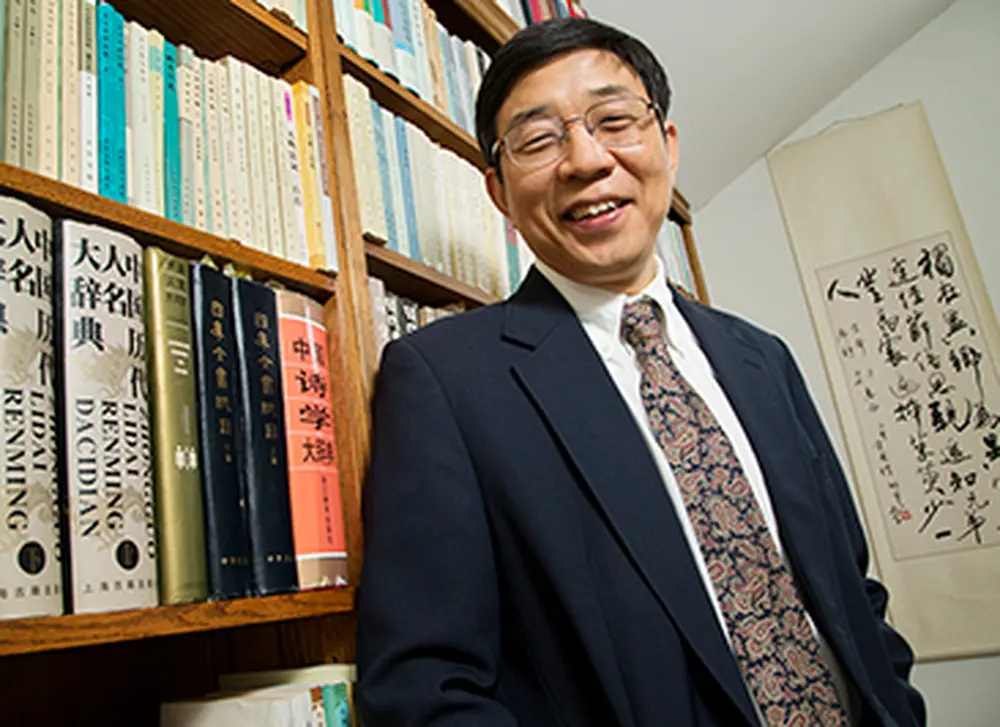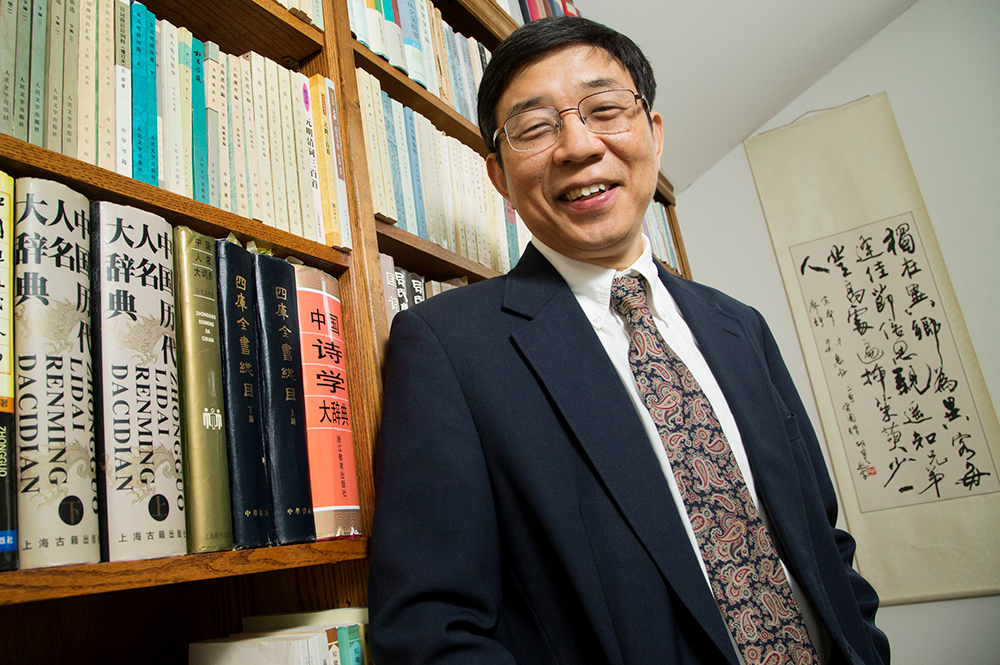

Zong-qi Cai, professor of East Asian languages and cultures at Illinois, is growing in prominence as an expert on understanding Chinese literature. He recently signed an agreement with Columbia University Press to be the general editor of a book series titled “How to Read Chinese Literature.”
Also, Cai’s journal, PRISM: Theory and Modern Chinese Literature, has been formally approved by Duke University Press. Co-sponsored by Lingnan University of Hong Kong and the University of Illinois, the journal—his second Duke journal—is yet another fruit of his endeavors to pursue high-profile collaboration between Illinois and Chinese universities.
The “How to Read Chinese Literature” book series will consist of ten books that cover fiction, drama, traditional Chinese poetry, prose and literary theory. The post is a prestigious one, as Columbia University Press is the oldest and arguably the most prestigious publisher of translations of Asia classics and literary anthologies.
The series, the most comprehensive project of its kind ever undertaken in the English-speaking world, aims to “revolutionize the teaching and learning of Chinese literature for the 21st century,” according to Cai.
“I’m very humbled by this invitation and I will work hard to produce a set of language texts that will serve the field for decades to come,” Cai said.
A member of faculty at Illinois since 1993, Cai is currently the co-founding editor-in-chief of Journal of Chinese Literature and Culture published by Duke University Press, editor-in-chief of Lingnan Journal of Chinese Studies, and the host of the Forum on Chinese Poetic Culture.
He has also edited “How to read Chinese poetry,” a guided anthology and the companion language workbook text that goes along with it. Both texts are a part of the new book series and have received great response. This success led to Columbia University Press extending the invitation to Cai to make a book series.
Cai wishes to maintain the cross-cultural connections he has made on campus and promote the same connections for students and individuals interested in Chinese literature. He said that there are enormous benefits from international collaboration, as both the book series and the Journal of Chinese Literature and Culture are collaborative projects with Professor Yuan Xingpei of Peking University. The new Duke journal, PRISM, is a collaborative project with Lingnan University of Hong Kong.
“My ideal scholarly pursuit is to try and bridge the gaps between Chinese language scholarship and English language scholarship. I want to establish a forum for scholar exchange,” Cai said.
He hopes that his involvement with the series will increase the interest of students and scholars around the world who are interested in Chinese literature and trans-language courses.
“For the department, I believe the book series and the Duke journal will set Illinois and the East Asian Languages and Cultures Department as one of the most important centers for Chinese literary study,” Cai said.
The book series has also created a platform for training students. Taking advantage of his professional connections with Hong Kong and Chinese universities, Cai raised funds that made it possible to hire student assistants to help edit the series. This gave students a rare opportunity to develop professional competence as editors and contributors to the series.
Cai added that he is grateful for a journal support fund from the College of LAS that enabled him to hire a student research assistant to help manage the operation of the Journal of Chinese Literature and Culture.
“I hope that this series and the compilation of texts helps revolutionize the teaching and learning of Chinese literature,” Cai said.


